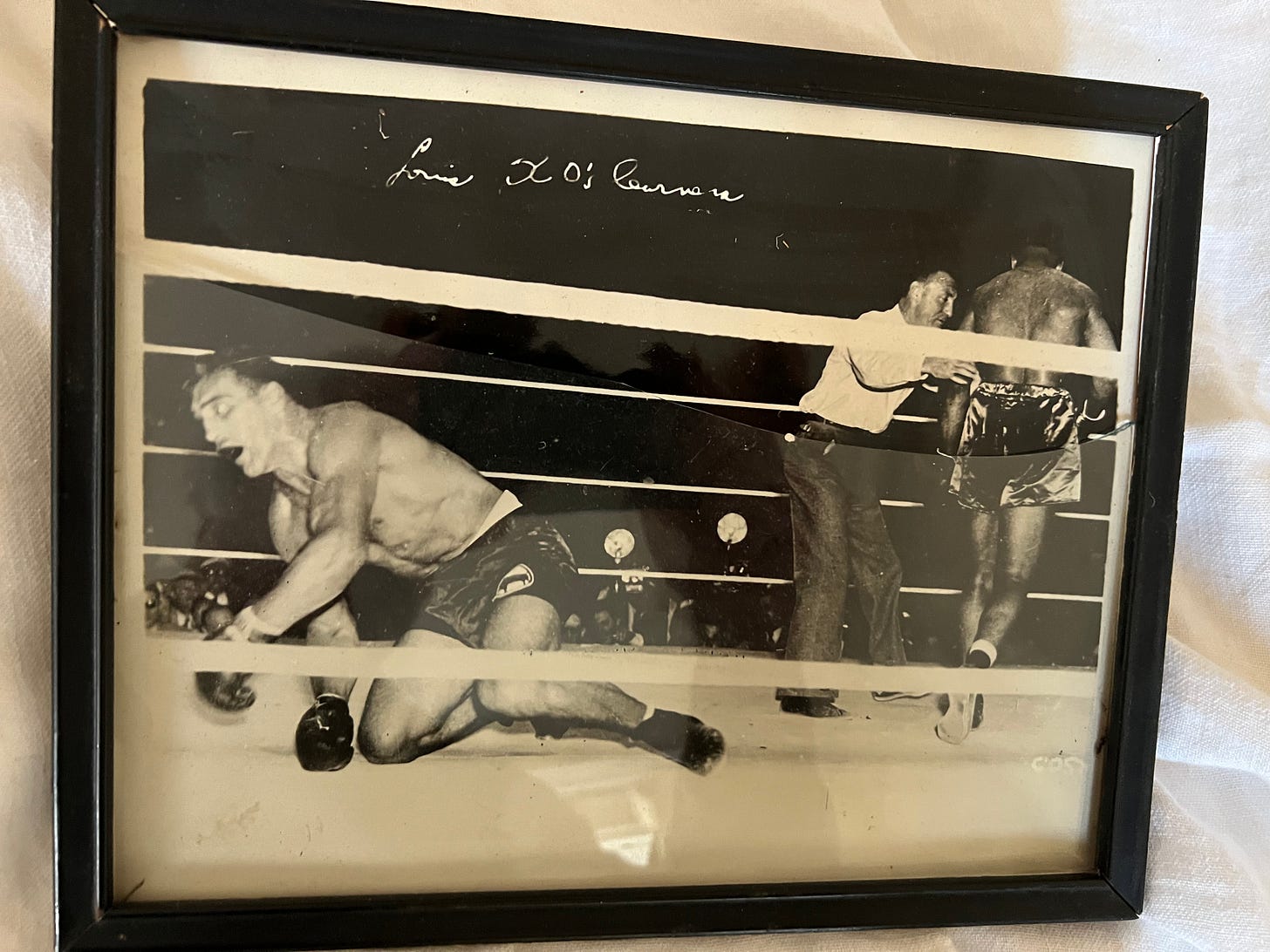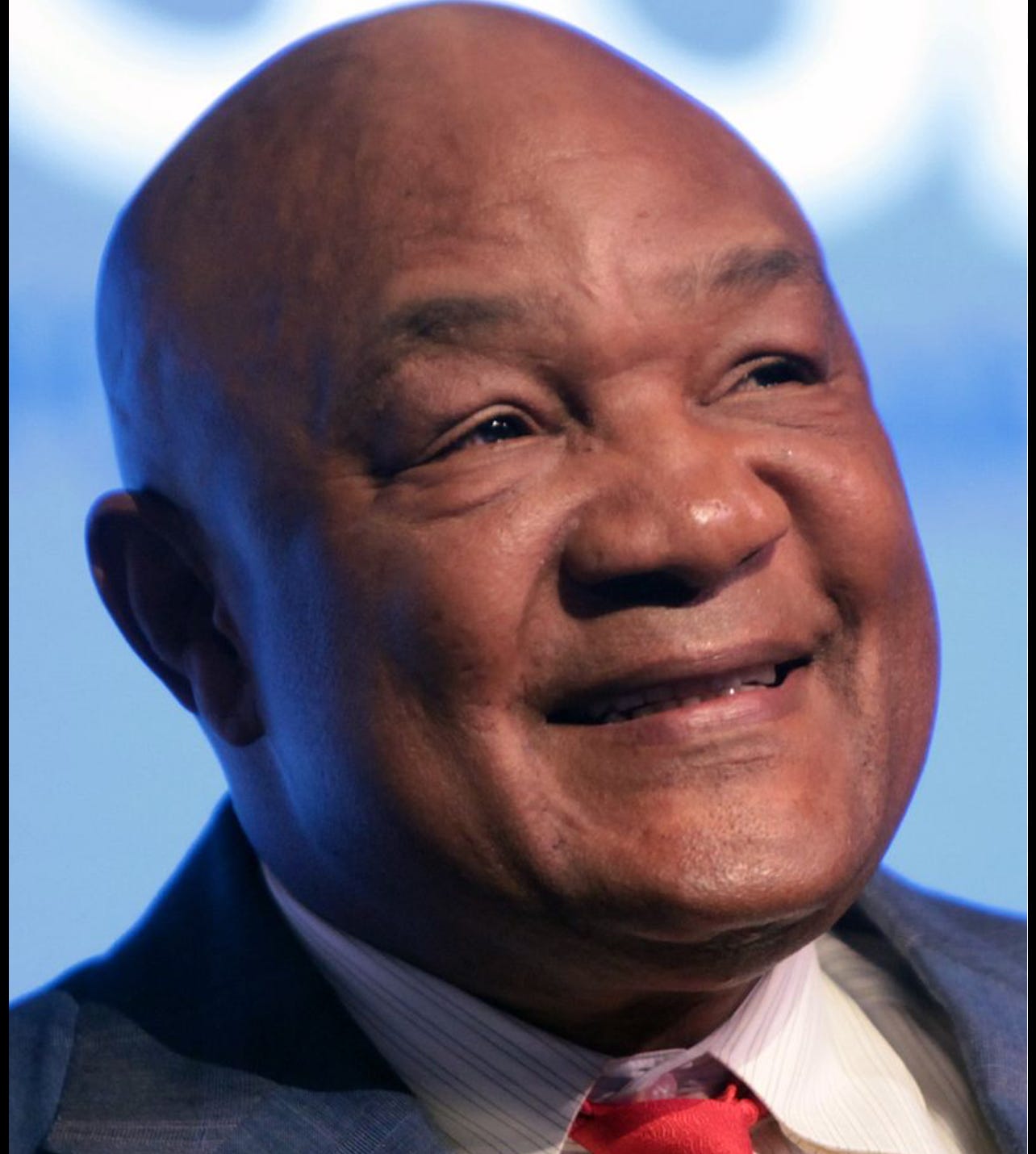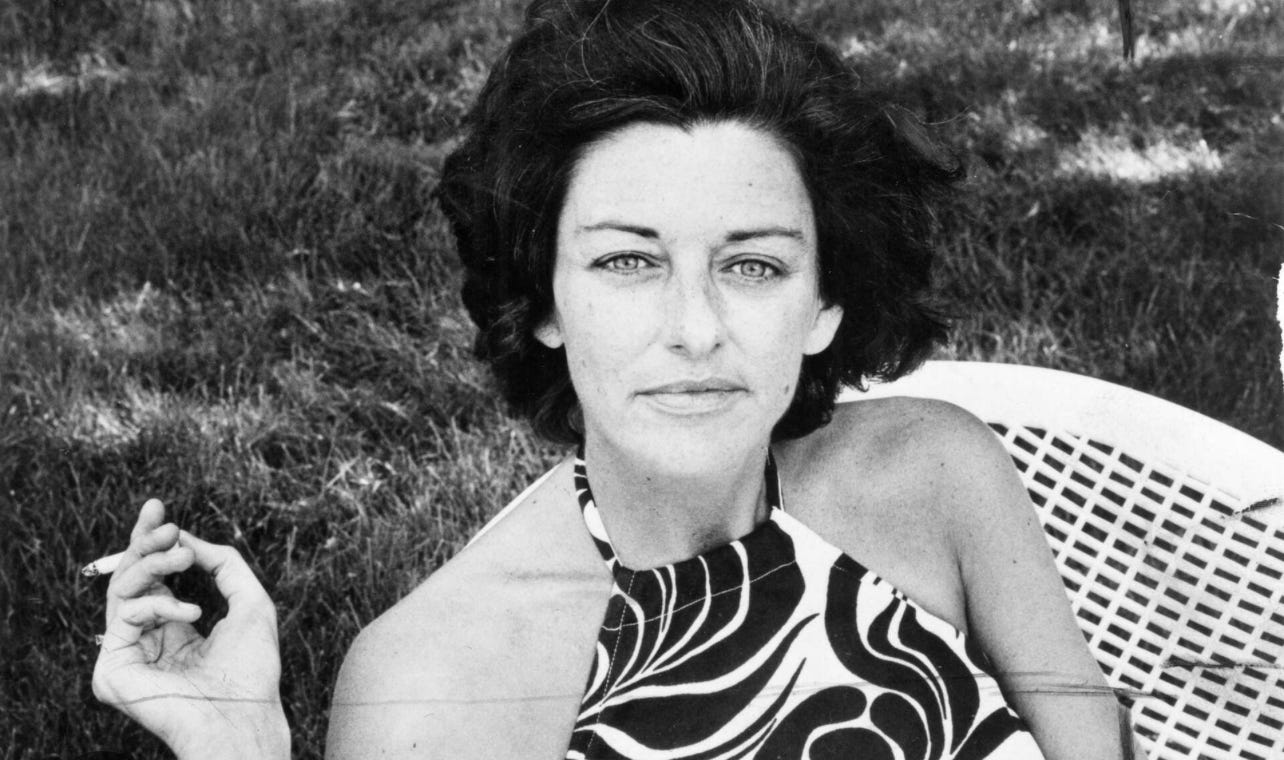On Getting Knocked Out. And Trying To Get Up Again
About heavyweights, poetry, and pulling yourself together.
The day after the election I found something I’d been looking for. It was a photo my wife gave me as a gift back in the 1990s. It shows Primo Carnera, who won more fights by knockout than any other heavyweight champion, trying to rise after being flattened by Joe Louis. We found it behind a file cabinet in a shattered glass frame.
There’s a story behind the picture. Carnera, a giant from Italy, could punch, but many of his title bouts were fixed by his mob controllers. His manager made sure the “Ambling Alp” would never get hit square on the chin. One opponent, Big Boy Peterson, was counted out after “punching himself” in the jaw. Another, Bombo Chevalier, had his own seconds throw in the towel, after threatening to kill him if he didn’t take a dive. Earlier in the bout, when Chevalier refused to capitulate, his cornerman tried to blind him between rounds with a burning solution on a sponge.
Nevertheless, Carnera became a favorite of Benito Mussolini, who promoted the boxer as the fascist ideal of manly perfection. Until the half-Jewish American heavyweight Max Baer, fighting with a Star of David on his trunks, knocked Carnera to the canvas 11 times and took the title from him on June, 14, 1934. Carnera staged a bit of a comeback after that, winning his next four fights. But then Joe Louis, aka “the Brown Bomber,” battered him to a fare-thee-well and knocked him out in the sixth round.
I always cherished this picture because I think it captures a moment of truth. The look on Carnera’s face is something more than defeat. It’s the realization that he’s not the man he thought he was and he’s going to have to live with that for the rest of his life.
(Humphrey Bogart’s final film, The Harder They Fall, based on a Budd Schulberg, tells essentially the same story).
Writers often use metaphors in confusing ways, so let’s be clear: I’m not saying Kamala Harris has a glass jaw. I’m not even talking about the characteristics her victorious opponent might share with Primo Carnera. I’m talking about how you handle yourself when you’ve been beaten so soundly that you question everything you’ve done in your life.
There is a term in psychology known as the “narcissistic wound,” which refers to an emotional trauma so severe that it can overwhelm even a strong person’s defenses to devastate any vestige of pride or self-worth. I have never liked that term, because it implies someone who dedicates themselves to a singular pursuit and then fails must be a narcissist. But most of us know what it’s like to be knocked out cold and find yourself down on the canvas looking up.
One of the reasons I always liked to write about boxing is that the human drama is so stark. When George Foreman got knocked out by Muhammad Ali in the Rumble in the Jungle, it obliterated his public image as a glowering indomitable world-beater. I have to believe it did the same to him internally. Because when he reemerged as a born-again Christian years later, he had a completely different appearance and persona: affable, rotund, and a little eccentric. And he regained the title as the oldest heavyweight champion in boxing history.
By contrast, Mike Tyson was known as the Baddest Man in The World before he took on an ordinary flat-footed club fighter named Buster Douglas. You could feel his opponents’ fear when he walked into the ring without a robe and knocked out man after man in the first round. But after Douglas delivered a shocking knockout blow in the tenth round, Tyson was never the same. He’s struggled to reclaim his old identity ever since, disgracing himself when he bit off part of Evander Holyfield’s ear in a losing 1997 bout and now tuning up for a fight against a YouTube celebrity who is 31 years younger.
So how do you scrape yourself up off the mat, if you’ve thought of yourself as a liberal humanist in what is now becoming a very different country? I’m still not sure I have a decent answer. But I took heart when the musician and writer Marc Campbell shared this poem the other day. It’s by Anne Sexton, who never fought for the heavyweight title or nibbled on Evander Holyfield.
It’s called Courage and goes like this:
It is in the small things we see it.
The child's first step,
as awesome as an earthquake.
The first time you rode a bike,
wallowing up the sidewalk.
The first spanking when your heart
went on a journey all alone.
When they called you crybaby
or poor or fatty or crazy
and made you into an alien,
you drank their acid
and concealed it.
Later,
if you faced the death of bombs and bullets
you did not do it with a banner,
you did it with only a hat to
cover your heart.
You did not fondle the weakness inside you
though it was there.
Your courage was a small coal
that you kept swallowing.
If your buddy saved you
and died himself in so doing,
then his courage was not courage,
it was love; love as simple as shaving soap.
Later,
if you have endured a great despair,
then you did it alone,
getting a transfusion from the fire,
picking the scabs off your heart,
then wringing it out like a sock.
Next, my kinsman, you powdered your sorrow,
you gave it a back rub
and then you covered it with a blanket
and after it had slept a while
it woke to the wings of the roses
and was transformed.
Later,
when you face old age and its natural conclusion
your courage will still be shown in the little ways,
each spring will be a sword you'll sharpen,
those you love will live in a fever of love,
and you'll bargain with the calendar
and at the last moment
when death opens the back door
you'll put on your carpet slippers
and stride out.
The rub here is that Sexton was a complicated figure who wound up killing herself. But often the art can go places that the artist can’t get to.
Meanwhile, I’m going to replace the broken frame Primo Carnera was in and put the picture back up on the wall. After the Joe Louis fight, he became a professional wrestler for a while. Then he acted in a few movies, got married, became a dual citizen of America and Italy, opened a liquor store in LA, had a couple of children, and lived what appears to have been an honorable life. He died at the age of 60 from liver disease and diabetes in Sequals, his hometown in Italy.






I am going to work on becoming George Foreman. I’ll disappear and return affable, rotund, and a little eccentric. Then I’ll knock their asses into the middle of next week.
Love that poem ❤️